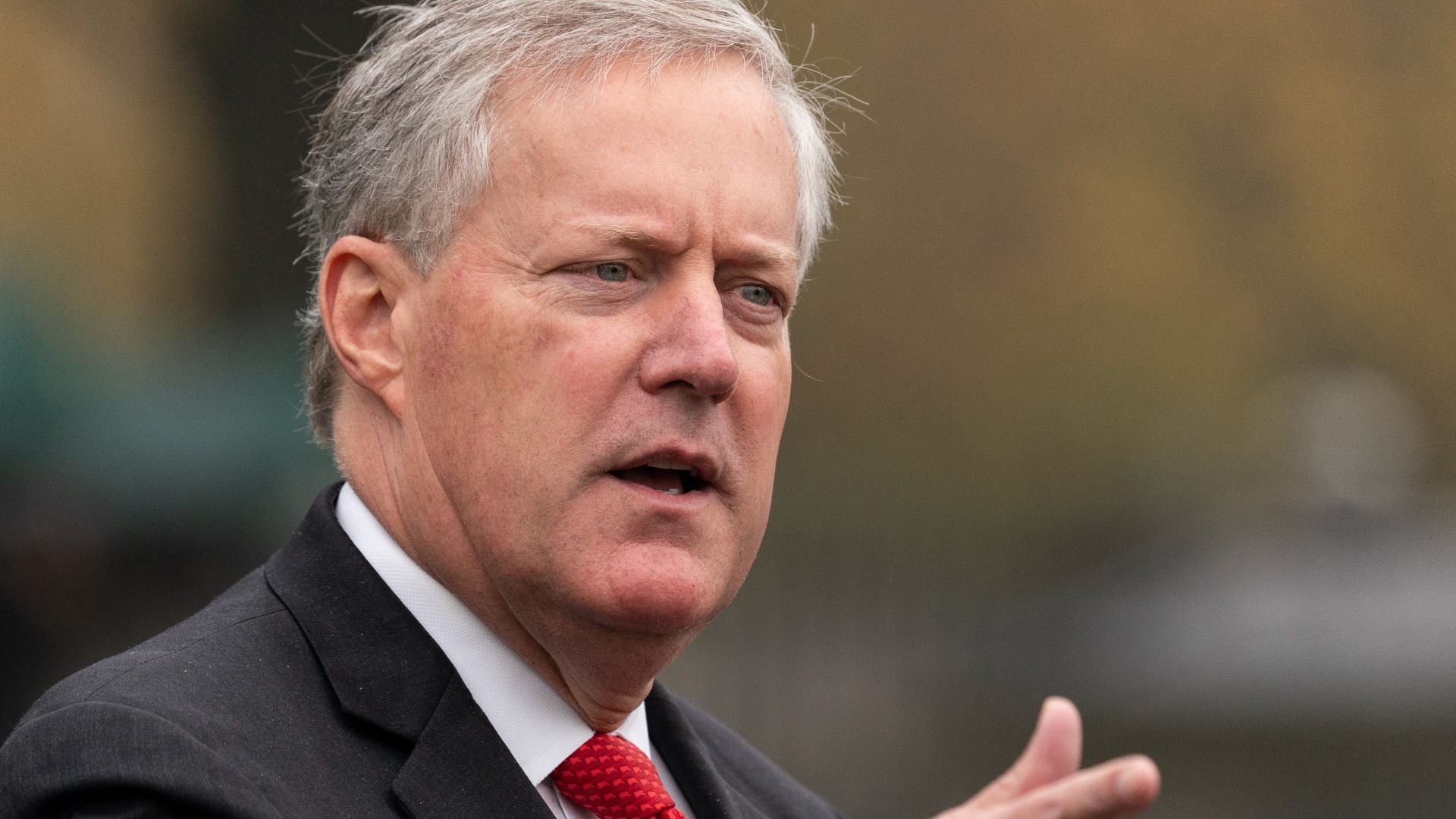ATLANTA — A judge on Wednesday ordered former White House chief of staff Mark Meadows to testify before a special grand jury that's investigating whether then-President Donald Trump and his allies illegally tried to influence the state's 2020 election.
Fulton County District Attorney Fani Willis opened the investigation early last year into actions taken by Trump and others to overturn his loss to Democrat Joe Biden. Meadows is one of a number of high-profile associates and advisers of the Republican former president whose testimony Willis has sought.
Because Meadows doesn't live in Georgia, Willis, a Democrat, had to use a process that involves getting a judge where he lives in South Carolina to order him to appear. She filed a petition in August seeking to compel his testimony. Fulton County Superior Court Judge Robert McBurney, who's overseeing the special grand jury, signed off on the petition, certifying that Meadows is a “necessary and material witness” for the investigation.
Circuit Court Judge Edward Miller in Pickens County, South Carolina, honored McBurney's finding and ordered Meadows to testify, Willis spokesman Jeff DiSantis confirmed. Meadows attorney James Bannister could not immediately be reached for comment.
In the petition seeking Meadows’ testimony, Willis wrote that Meadows attended a Dec. 21, 2020, meeting at the White House with Trump and others “to discuss allegations of voter fraud and certification of electoral college votes from Georgia and other states.” The next day, Willis wrote, Meadows made a “surprise visit” to Cobb County, just outside Atlanta, where an audit of signatures on absentee ballot envelopes was being conducted. He asked to observe the audit but wasn’t allowed to because it wasn’t open to the public, the petition says.
Meadows also sent emails to Justice Department officials after the election alleging voter fraud in Georgia and elsewhere and requesting investigations, Willis wrote. And he participated in a Jan. 2, 2021, phone call with Georgia Secretary of State Brad Raffensperger, during which Trump suggested the state’s top elections official, also a Republican, could “find” enough votes to overturn his narrow election loss in the state.
In a court filing this week, Bannister argued that executive privilege and other rights shield his client from testifying.
Bannister asserted in the filing that Meadows has been instructed by Trump “to preserve certain privileges and immunities attaching to his former office as White House Chief of Staff.” Willis' petition calls for him “to divulge the contents of executive privileged communications with the President," Bannister wrote.
Meadows previously invoked that privilege in a fight against subpoenas issued by the U.S. House committee investigating the Jan. 6, 2021, attack on the U.S. Capitol. The House held Meadows in contempt of Congress for defying the subpoena, but the Justice Department declined to prosecute.
Special grand juries in Georgia cannot issue indictments. Instead, they can gather evidence and compel testimony and then can recommend further action, including criminal charges, in a final report. But it is ultimately up to the district attorney to decide whether to seek an indictment from a regular grand jury.
Bannister argued that the special grand jury proceedings do not qualify as a criminal proceeding under the South Carolina law that governs out-of-state subpoena requests and that Meadows cannot be compelled to testify in a civil inquiry. Because he has no testimony to offer, he cannot be considered a “material witness," the filing argues.
Grand jury secrecy is “paramount” in South Carolina, Bannister wrote. Because the special grand jury is expected to ultimately issue a public report and the paperwork seeking Meadows' testimony was publicly filed, it is contrary to South Carolina grand jury secrecy provisions and that would violate his state right to privacy, Bannister argued.
McBurney, the Fulton County Superior Court judge, has made clear in ruling on other attempts by potential witnesses to avoid or delay testimony that he considers the special grand jury's investigation to be a criminal proceeding. He has also stressed the need for the secrecy of the panel's workings.

